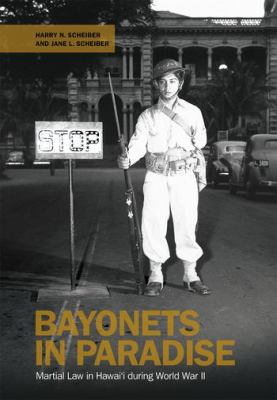
Book
|
Bayonets in paradise : martial law in Hawaiʻi during World War II
Copies
1 Total copies, 1 Copies are in,
0 Copies are out.
Title
Bayonets in paradise : martial law in Hawaiʻi during World War II
Subjects
Martial law--Hawaii--History--20th century.
Japanese Americans--Legal status, laws, etc.--Hawaii--History--20th century.
World War, 1939-1945--Law and legislation--United States.
World War, 1939-1945--Hawaii.
Hawaii--History--1900-1959.
World War (1939-1945) fast (OCoLC)fst01180924
Japanese Americans--Legal status, laws, etc.
Japanese Americans.
Legislation.
Martial law.
Hawaii.
United States.
Military history.
History.
Japanese Americans--Legal status, laws, etc.--Hawaii--History--20th century.
World War, 1939-1945--Law and legislation--United States.
World War, 1939-1945--Hawaii.
Hawaii--History--1900-1959.
World War (1939-1945) fast (OCoLC)fst01180924
Japanese Americans--Legal status, laws, etc.
Japanese Americans.
Legislation.
Martial law.
Hawaii.
United States.
Military history.
History.
Language
English
Published
Honolulu [HI] : University of Hawaiʻi Press, [2016]
Publication Desc
xx, 489 pages : illustrations ;
ISBN
9780824852887 (hardcover : alkaline paper)
LCCN
2015017664
Dimensions
27 cm








